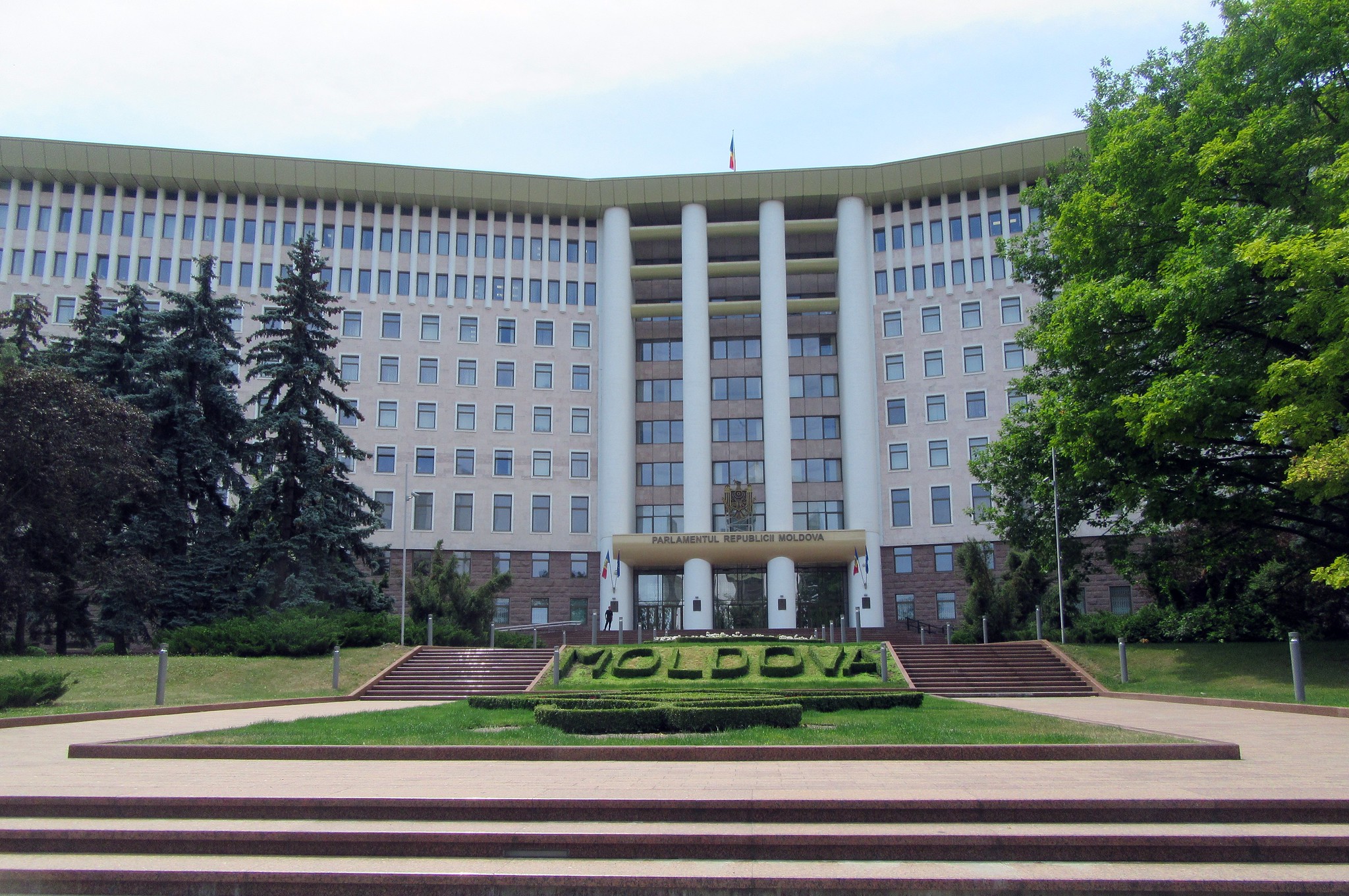Moldova. A “blitzkrieg” against the rule-of-law aspiring government
Slightly disregarded during the last five months, geopolitics has returned to the centre stage in Moldova after the Socialist-ACUM parliamentary coalition collapsed mid-November.
November 27, 2019 -
Denis Cenusa
-
Articles and Commentary

Parliament of the Republic of Moldova. Photo: amanderson2 (cc) flickr.com
From the very beginning, it was clear that an authentic reform agenda initiated by two radically distinct forces in Moldovan politics constituted a serious risk. In the summer of 2019, the Socialists and ACUM bloc put the country’s geopolitics and rule of law at stake to provoke further political instability. Five months into the initiatives aimed to destroy poor governance in public institutions, the government of Maia Sandu (ACUM bloc) has suddenly collapsed. It was suspended while trying to recruit a trustworthy prosecutor general that she expected would reform the judiciary. This move turned out to be too sensitive for the coalition and a political contest with the Socialists ensued. The latter won in the short term, but ACUM plans its own payback during the upcoming presidential election or in the event of early parliamentary elections.
Why does the prosecutor general matter?
ACUM picked the prosecutor office’s reform as a “red line” against the “cosmetic changes”. This element of reform is of crucial importance as it could speed up the struggle against corruption and become the biggest investment in the rule of law. A spillover self-disciplining effect could be forced throughout the political and public spectra – from the regular politicians and judges to the public servants of lower rank.
Prior to being sacked, Maia Sandu pointed out that the future prosecutor general should be courageous and have impeccable integrity. Such requirements made it clear that the ACUM bloc was searching for a candidate in the civil society sector rather than somewhere else. This turned out unacceptable for the Socialists who wanted to appoint a candidate via the selection mechanism in September 2019. Amid scandalised scores of the selection committee, Maia Sandu cancelled the mechanism for appointing the prosecutor general. The Socialists managed to easily rebuild the bridges towards the Democrats and arrange a “blitzkrieg” against Maia Sandu’s government. It ended with the successful vote of no-confidence on November 12th 2019.
Presented as “technocratic”, but largely built from people recently employed by President Igor Dodon, the new government expressed no reluctance vis-à-vis the reforms. However, a multispeed approach has been invoked and the new minister of justice wishes the quickest possible appointment of the prosecutor general. A longer-term reform is designed for the justice sector, in which the Venice Commission’s recommendations have to play a significant role, as should include public consultations. However, ACUM, now the opposition, and large parts of the civil society doubt the dedication of the Socialists to rule of law-related reforms.
High demand for reforms, but who is to deliver them?
All major external partners of Moldova made it clear that the expectations were high and that financial assistance was at stake. The new government led by Dodon’s advisor Ion Chicu has started its mandate by guaranteeing that no revision of the reform agenda would take place. He reached out to the IMF, European banks and the EU and guaranteed that he will keep up with the reforms. Yet, financial assistance is expected from Russia too, but purely for road infrastructure refurbishing. For what could be called “hard reforms”, such as those of the justice sector, Chicu has openly requested EU assistance. However, the “soft reforms” in social areas are what will absorb most of the resources in the 2020 election year.
The new government will operate on thin ice because it depends on all the political forces in the parliament, including the Socialists. The ACUM bloc has an interest in pursuing a collapse of the government erected on the ashes of the no-confidence vote against Sandu. The Democrats support the fresh executive as a handy option to replace ACUM’s harsh reforms. Finally, the Socialists could sacrifice their own minority government if the circumstances require early elections to favour Dodon’s chances in the 2020 presidential run.
In the end, geopolitics matters
Slightly disregarded during the last five months, geopolitics has returned to the centre stage. The confidence of the Socialists makes their pro-Russian rhetoric less cautious. At the same time, the absence of the pro-EU pole in the governing coalition inevitably creates a misbalance, which can become noticeable regardless of the balanced-like foreign policy announced by Chicu. His first foreign trip to Moscow confirmed this assumption. Which is the reason why Moscow agreed to re-open the market for more Moldovan goods, drop the price for gas and offer credits.
Moldova’s signed Association Agreement with the EU should, however, serve as a solid guarantee against any negative developments. In this regard, the EU-based stakeholders could encourage the pro-EU opposition and civil society to supervise the government’s behaviour and discourage its sliding towards the East. Involving the government and parliament into trilateral European integration discussions, together with Ukraine and Georgia, provides an additional leverage to hold Moldova on the “Europeanisation” track.
Lastly, the change of government in Moldova has not yet transformed the pro-European attitudes of the electorate. Therefore, every temporary political shift should be used to advance the necessary reforms as far as possible. The impact of the inner political pressure and, mainly EU-originated, external conditions should not be abandoned. This may still seem challenging given the marks of the recent “state capture” that left deep scars on the democratic institutions.
Denis Cenusa is a PhD candidate and researcher at the Institute of Political Science at the Giessen University in Germany. He is an associate expert at the “Expert-Grup” think tank in Moldova and a contributor at IPN News Agency in Moldova since 2015.

































